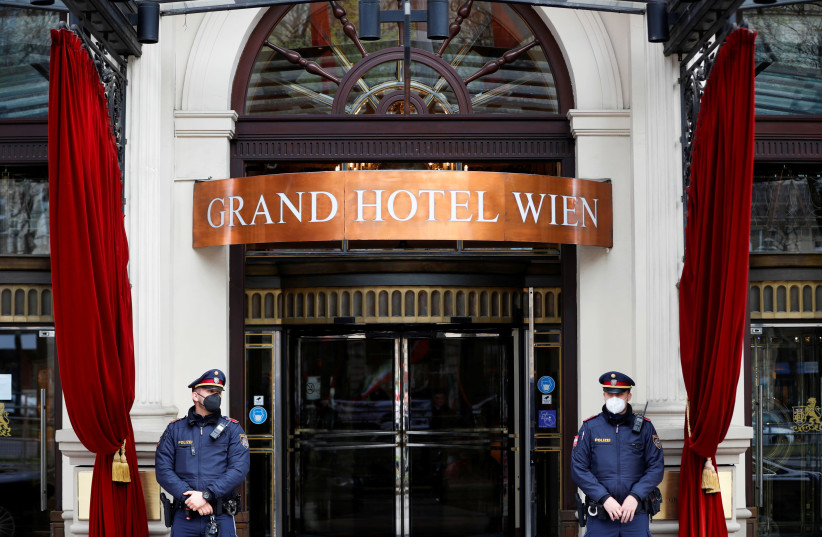European parties to Iran’s agreement have warned against taking non-diplomatic measures to halt the Islamic Republic’s nuclear program in a statement released on Wednesday: “We encourage all parties to seize the diplomatic opportunity ahead of us,” said diplomats from Britain, Germany and France said. “We condemn the escalating measures of any actor that could jeopardize progress.” The remarks came a week after an explosion at Iran’s main uranium enrichment unit at Natanz, which Tehran blamed on Israel. Israel has not officially commented on the incident, but sources say the Mossad was behind the attack, which reduced Iran’s nuclear program a few months ago. Mossad Chief Yossi Cohen, National Security Adviser Meir Ben-Shabbat and IDF Chief of Staff Lt.-Gen. Aviv Kohavi is set to meet with their US counterparts in Washington next week to support Israel’s cause against Iran’s return to the 2015 agreement without significantly strengthening it. Defense officials’ meetings will take place after two rounds of indirect negotiations between the US and Iran. Return to the Joint Comprehensive Action Plan (JCPOA), as the nuclear deal is formally known. “We don’t think it’s an agreement yet,” a senior official said. “We’re going there because we’re going to try to influence the process.” Prime Minister Benjamin Netanyahu, Defense Minister Benny Gantz and Foreign Minister Gabi Ashkenazi plan to meet with defense officials on Thursday for an Iranian policy meeting.
cnxps.cmd.push (function () {cnxps ({playerId: ’36af7c51-0caf-4741-9824-2c941fc6c17b’}). render (‘4c4d856e0e6f4e3d808bbc1715e132f6’);});
if (window.location.pathname.indexOf (“656089”)! = -1) {console.log (“hedva connatix”); function.getElementsByClassName (“divConnatix”)[0].style.display = “none”;}The senior official noted that the meetings in Washington will be the first face-to-face meetings with top Biden administration officials, with the exception of US Secretary of Defense Lloyd Austin, who visited Israel last week. “Austin has heard our concerns [about Iran] very directly, and now other people will hear these concerns. It’s important. You can have secure phones, but sometimes you have to stay in the same room, “the official said. E3, as the European parties to the nuclear deal with Iran are known, said on Wednesday that negotiations in Vienna in recent weeks to bring Iran and the US back According to the 2015 JCPOA, they have been productive, but they are far from over. “We welcome the constructive talks that have taken place in Vienna and the positive participation of all parties so far,” said E3 diplomats. some progress, but there is still a long way to go. ” Under the JCPOA, Iran has agreed to reduce its uranium enrichment in exchange for relief from US and other sanctions, and critics of the agreement point out that its restrictions on Iran’s nuclear activities expire in 2030 and do not address the Islamic Republic’s missile program. The administration of US President Joe Biden is trying to join the JCPOA and said it is ready to remove “all sanctions that are incompatible” with the agreement, without detailing what measures it entails. said it will not return to strict compliance with the 2015 agreement unless all sanctions were resumed or added by former President Donald Trump after U.S. State Department spokesman Ned Price said Tuesday that the US will make concessions only after it is certain that Iran will return to full compliance with the JCPOA. uranium enrichment from 60% to less than 5% and the disposal or sale of a large number of centrifuges.
